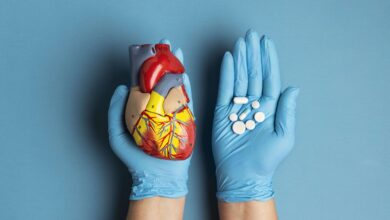A Comprehensive Guide to Improving Your Physical and Mental Health

In today’s fast-paced and stressful world, it’s crucial to prioritize our physical and mental well-being. The good news is that there are various ways we can enhance our overall health and achieve a better quality of life. This article will provide a comprehensive guide to improving both your physical and mental health, offering practical tips and strategies that can be incorporated into your daily routine.
I. Prioritizing Physical Health
A. Regular Exercise:
The Importance of Exercise: Regular physical activity has numerous benefits for both the body and mind.
Types of Exercise: Explore different forms of exercise, including cardiovascular workouts, strength training, and flexibility exercises.
Creating an Exercise Routine: Develop a consistent exercise routine that suits your preferences and lifestyle.
Staying Motivated: Find ways to stay motivated and overcome barriers to exercise.
B. Balanced Diet and Nutrition:
Understanding Balanced Nutrition: Learn about the essential nutrients and their role in maintaining optimal health.
Eating a Varied Diet: Include a wide range of fruits, vegetables, whole grains, lean proteins, and healthy fats in your meals.
Portion Control: Practice mindful eating and portion control to maintain a healthy weight.
Hydration: Stay adequately hydrated by consuming an adequate amount of water throughout the day.
C. Sufficient Sleep:
Importance of Sleep: Understand the critical role that sleep plays in overall health and well-being.
Establishing a Sleep Routine: Create a consistent bedtime routine and aim for 7-9 hours of quality sleep each night.
Sleep Environment: Optimize your sleep environment by ensuring it is cool, dark, and free from distractions.
Managing Sleep Disorders: Seek professional help if you experience persistent sleep issues.
II. Nurturing Mental Well-being
A. Stress Management:
Identifying Stress Triggers: Recognize the factors that contribute to your stress levels.
Healthy Coping Mechanisms: Discover effective stress management techniques such as deep breathing exercises, meditation, and engaging in hobbies.
Time Management: Improve your productivity and reduce stress by managing your time effectively.
Seeking Support: Don’t hesitate to seek support from loved ones, friends, or professionals when dealing with excessive stress.
B. Mindfulness and Meditation:
Understanding Mindfulness: Embrace the practice of mindfulness to cultivate present-moment awareness and reduce anxiety.
Meditation Techniques: Explore various meditation techniques, including focused attention meditation and loving-kindness meditation.
Incorporating Mindfulness into Daily Life: Find ways to incorporate mindfulness into your daily routine, such as mindful eating or walking.
C. Social Connections and Support:
Importance of Social Connections: Nurture meaningful relationships and engage in social activities to enhance mental well-being.
Building a Support System: Surround yourself with a supportive network of friends, family, or community groups.
Volunteering and Giving Back: Contribute to your community by engaging in volunteer work or acts of kindness.
III. Integrating Physical and Mental Health
A. Holistic Approaches:
Yoga and Tai Chi: Explore the benefits of yoga and tai chi in improving both physical and mental health.
Nature and Outdoor Activities: Spend time in nature, engage in outdoor activities, and reap the benefits of connecting with the natural world.
Mind-Body Practices: Consider integrating mind-body practices such as acupuncture, aromatherapy, or massage therapy.
B. Seeking Professional Help:
Recognizing the Need: Understand that seeking professional help is a sign of strength and self-care.
Mental Health Professionals: Consult with a therapist, counselor, or psychologist to address any mental health concerns.
Physical Health Professionals: Seek guidance from healthcare professionals such as doctors, nutritionists, or personal trainers for expert advice on improving physical health.
Integrative Approaches: Consider integrative healthcare approaches that combine conventional medicine with complementary therapies for a holistic approach to well-being.
C. Mind-Body Connection:
Understanding the Link: Recognize the intricate connection between the mind and body and how they influence each other.
Emotional Release: Find healthy outlets for emotions, such as journaling, art therapy, or talking to a trusted friend.
Cognitive Behavioral Therapy (CBT): Explore the benefits of CBT, a therapeutic approach that focuses on identifying and changing negative thought patterns.
Self-Reflection and Self-Care: Take time for self-reflection and engage in self-care activities that nurture both your physical and mental well-being.
Improving your physical and mental health is a lifelong journey that requires dedication and commitment. By implementing the strategies outlined in this comprehensive guide, you can enhance your overall well-being and lead a happier, more fulfilling life. Remember to prioritize regular exercise, maintain a balanced diet, get sufficient sleep, manage stress effectively, and seek professional help when needed. Integrating physical and mental health, practicing mindfulness, nurturing social connections, and recognizing the mind-body connection are vital steps in achieving optimal well-being. Start making small changes today, and over time, you will experience the positive impact on both your physical and mental health. Embrace the power you have to transform your life and become the best version of yourself.



